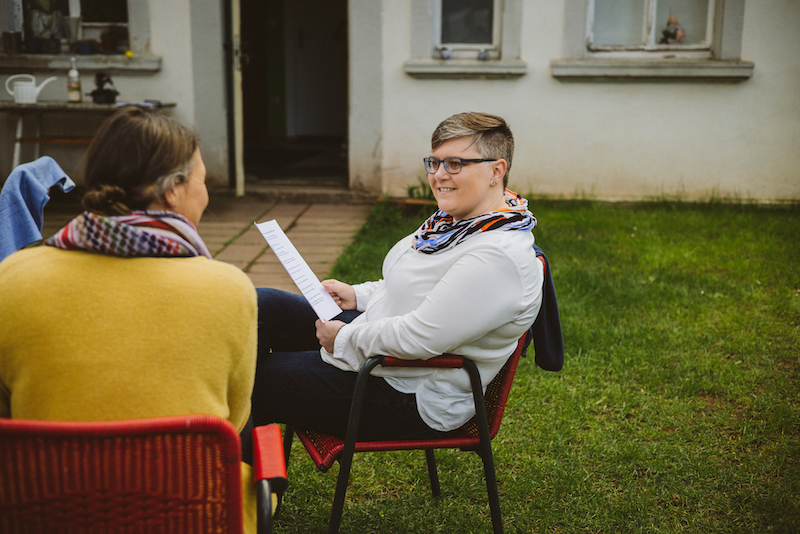Hello, I’m Julia.
Great to have you here!
Are you also looking for (professional) happiness in science, but are unsure whether you really “have what it takes”? Not only do you repeatedly experience setbacks, rejections, pressure to perform and competition as a scientist, but are you also plagued by the system-related ambiguities and obstacles of a scientific career?
Then you’re like me!
My Philosophy:
Mind over matter – If you don’t mind,
it doesn’t matter 😉
– Mark Twain (loosely)
My Story
I always knew that I enjoyed learning and discovering new things, looking at things from different angles and finding new connections. That’s why the path to studying and then to a PhD – at least in retrospect – was quite natural. After all, where else would I have a better opportunity to fulfil these qualities than in science?
At the beginning, it went really well! Unfortunately, over time, a number of beliefs, familial perceptions and emotional reaction patterns came to the fore that made it increasingly difficult for me to enjoy my situation as a scientist. This, in combination with the general professional uncertainty (“Temporary again and then only a half-time job? What will you do after that? You need a secure perspective! You need to earn some real money soon!”) and my increasing inner insecurity (“Can I do this? Do I have enough “tick marks” on my CV to have a chance of getting other jobs? Am I even good enough?”) contributed to the fact that I experienced my first burnout during my doctorate.
And since I – as a serious scientist 😉 – naturally couldn’t rely on such a one-off anecdotal experience, I found myself at the same point again a few years later, now as a science manager.
Unfortunately, I’m not the only person I know who hasn’t been in good health working in academia. And the fact that the situation can be very psychologically stressful for early career researchers has not only been known since Covid-19 and “#IchbinHanna”.
Of course, it would be ideal to improve these conditions. But this is complicated and time-consuming, which is why I would like to support you in feeling better in this situation now. Because I am convinced that the most important factor for success is your inner attitude!
Whether you think you can or you think you can’t – you’re right.
– Henry Ford
Things on the outside are often difficult and set us limits, but even more often we stand in our own way!
Wrong, i.e. inhibiting preconceptions and attitudes, unhealthy perfectionism, impostor syndrome – these are all things that only exist in our heads. And this has two effects:
1. You can only change them yourself!
2. You can change them yourself!
You want to know how? I can help you with exactly that, just get in touch and I can tell you in more detail how we can work together. And if it doesn’t work out, we can at least have a virtual coffee together 😉
I look forward to getting to know you!
Overview
2022
Training as an emTrace®-Coach, Baum-Akademie
2022
Training as an ELC Neurolanguage Coach (ICF) with Rachel Paling (Efficient Language Coaching)
2019
Training as a person-centred coach (DGC) with Dr. Margret Fischer, echt.coaching
2012 – 2022
Coordinator and advisor for the support of young scientists at the Universities of Göttingen, Vechta, Tübingen and at the Jülich Research Centre
2014
Doctorate (Dr phil.) in Linguistics/Intercultural German Studies at the University of Göttingen
2005
Magistra Artium in Ethnology, English Philology and General and Indo-European Linguistics at the University of Göttingen

Erfolgscoaching für Wissenschaftler:Innen
Rechtliches
Impressum
Datenschutzerklärung
Über Dr. Julia Schmidt


